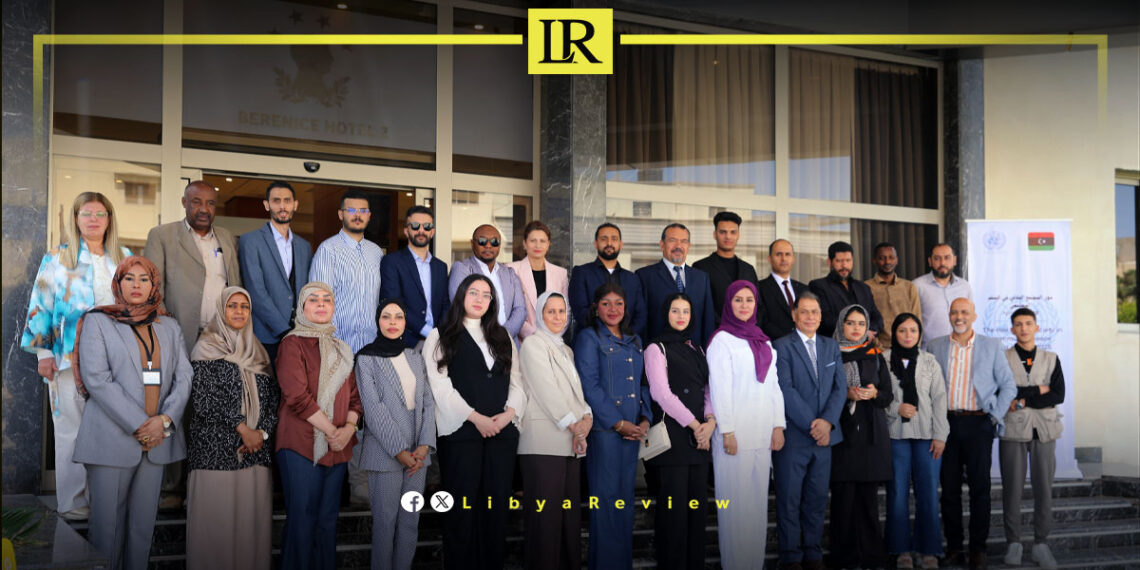On Wednesday, the United Nations Support Mission in Libya (UNSMIL), through its Security Institutions Division, organized a dialogue session in Benghazi to advance local support for civil peace and security sector reform.
The event brought together youth leaders, civil society representatives, and community activists as part of the UN’s ongoing efforts to foster inclusive dialogue around peacebuilding in Libya.
The session focused on promoting a shared understanding of community-based security and the role of civic engagement in shaping safer, more resilient societies.
Participants exchanged views on key themes including national reconciliation, trust in public institutions, and the rebuilding of security structures that are accountable to citizens.
Several international case studies were presented, offering insight into how post-conflict societies have restructured their security sectors with community input.
These examples were adapted to reflect Libya’s unique social and political dynamics, emphasizing the importance of local ownership and tailored approaches.
UNSMIL highlighted the role of civil society in bridging gaps between communities and institutions. Discussions emphasized that sustainable peace depends not only on political agreements, but also on grassroots participation and the integration of youth voices into policymaking.
The session also featured UNSMIL’s “Youth Participate” initiative, led by its Media and Communications Unit. This program aims to enhance the role of young Libyans in local decision-making and encourages youth-driven community projects that directly impact peace and development efforts.
UNSMIL reaffirmed its commitment to supporting inclusive, Libyan-led processes and strengthening dialogue across all segments of society. The mission continues to emphasize that sustainable peace requires cooperation between citizens, civil society, and institutions at every level.


